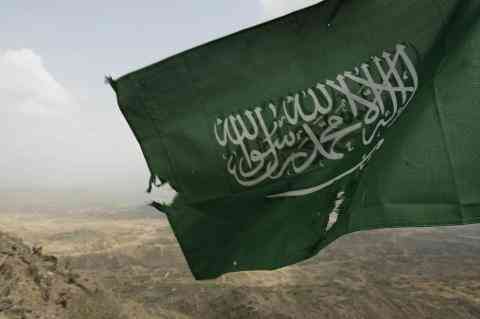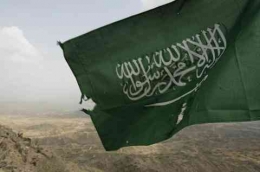The political, social, economic, and cultural ideas that Muslims in Saudi Arabia construct in connection to these concerns are known as "Islamic political thought." History, geography, culture, and ideology are some of the influences on Islamic political philosophy in Saudi Arabia (Ghafur, 2019). The Wahabi doctrine that was adopted as the official state doctrine is one of the most crucial elements. A school of Islam known as Wahabism is based on the ideas of Muhammad bin Abdul Wahab (1703–1792), a Najdi scholar who advocated a return to the original teachings of the Quran and the Sunnah and condemned all types of bid'ah and shirk. Wahabi is also regarded as a very traditional and literalist school of Islamic interpretation. Politics in Saudi Arabia are heavily influenced by the Wahabi, especially as they have an alliance with the Al Saud royal family dating back to the 18th century. Wahabi also has an impact on Saudi Arabia's foreign policy, media, education, and judicial system.
However, Saudi Arabian Islamic political philosophy is not uniform and monolithic. Wahabi is not the only Islamic movement or group with divergent or even opposing viewpoints. In Saudi Arabia, some instances of Islamic movements and organizations include:
- The Sahwa (Revival) movement began in the 1990s in response to the First Gulf War and the American occupation of the Holy Land (Ghafur, 2019). Salman Al-Auda and Safar Al-Hawali were among the clerics who spearheaded the campaign. They condemned the government for failing to uphold Muslim interests and for not applying the law in a kaffah way.
-The Ikhwan (Brotherhood) movement, which is an offshoot of the Egyptian Ikhwanul Muslimin formed by Hassan Al-Banna in 19281, also requested political and social reforms, including the creation of a shura council, elections, human rights, and women's participation. The movement's doctrine is moderate and progressive, fusing Islam with democracy. Additionally, the movement is engaged in the social, academic, and welfare sectors. Abdullah al-Turki and Abdullah Al-Hamid are a couple of the movement's Saudi Arabian leaders (Ghafur, 2019).
- The Jihadi (Struggle) movement, is an extreme organization that supports using violence to topple governments that it deems to be against Islam and combat its adversaries. Sayyid Qutb, an Egyptian Muslim Brotherhood thinker who was assassinated by the Nasser dictatorship in 1966, served as an inspiration for the group. Osama bin Laden, a fighter from Saudi Arabia who started Al Qaeda in 1988, had an impact on the group as well. Al Qaeda in the Arabian Peninsula (AQAP), and the Islamic State of Iraq, and Syria (ISIS) are two instances of jihadi organizations in Saudi Arabia (Ghafur, 2019).
In Saudi Arabia, the dynamics of Islamic political philosophy are always changing to reflect the circumstances and times. Saudi Arabia's domestic and regional politics are significantly influenced by Islamic political ideology.
Islamic organizations that are still going strong in Saudi Arabia are those that engage in political, social, or evangelistic activity. Wahabi, Sahwa, Ikhwan, Jihadi, and Syiah are some examples of Islamic organizations that are still active in Saudi Arabia.
Depending on the views and objectives of the group, the Saudi government approaches Islamic organizations in different ways. Here are some instances of how the Saudi government interacts with Islamic organizations:
- The Saudi government offers support and security to Wahabi, the official state sect. Wahabi clerics are permitted by the Saudi government to control the nation's moral, legal, and educational affairs. Based on an agreement to assist one another and maintain national stability, the Saudi government also allied with the Al Saud royal family (Azis, 2023).
- The Saudi government has exerted pressure and repression on Sahwa, a reformist movement calling for political and social change in Saudi Arabia. The movement was viewed as a challenge by the Saudi authorities to the status quo and the throne. Salman Al-Auda and Safar Al-Hawali are two of the movement's leaders who were detained, questioned, and punished by the Saudi government. The movement's space and freedom of expression in the media and society were likewise constrained by the Saudi government.







